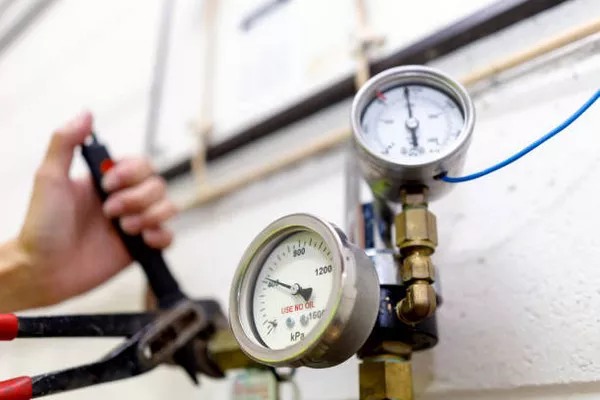Instrumentation plays a pivotal role in the field of electrical engineering, serving as the eyes and ears of electrical systems. It encompasses a wide range of devices and techniques used to measure, monitor, control, and record various electrical parameters and signals. In this article, we will delve into the world of instrumentation in electrical engineering, exploring its fundamental concepts, applications, and the key instruments involved.
The Basics of Electrical Instrumentation
Electrical instrumentation involves the measurement and control of electrical quantities such as voltage, current, resistance, power, frequency, and more. These measurements are essential for ensuring the safe and efficient operation of electrical systems, as well as for diagnosing and troubleshooting problems when they arise. Let’s take a closer look at some fundamental aspects of electrical instrumentation:
Measurement: One of the primary functions of electrical instrumentation is to accurately measure electrical parameters. Instruments like multimeters, voltmeters, ammeters, and ohmmeters are commonly used for this purpose. These devices provide quantitative information about the electrical characteristics of a circuit.
Control: In addition to measurement, instrumentation also involves control. Electrical engineers use control systems to regulate various aspects of electrical systems, such as voltage, current, and frequency. These systems often employ devices like relays, switches, and variable frequency drives (VFDs) to maintain desired operating conditions.
Monitoring: Instrumentation allows for continuous monitoring of electrical systems. Engineers can observe real-time data, track trends, and set alarms to detect and respond to anomalies promptly. This proactive approach helps prevent equipment failures and ensures the safety of personnel.
Data Logging and Analysis: Modern instrumentation systems can record vast amounts of data over time. This data can be analyzed to identify patterns, predict maintenance needs, and optimize system performance. Data logging devices, such as data loggers and SCADA (Supervisory Control and Data Acquisition) systems, play a crucial role in this process.
Applications of Electrical Instrumentation
Electrical instrumentation finds application in a wide range of industries and settings, including:
Power Generation and Distribution: Instrumentation is critical in power plants to monitor voltage, current, and power factor, ensuring stable electricity generation and distribution. Substations use instruments to control transformers, circuit breakers, and switchgear.
Manufacturing: Automation in manufacturing relies heavily on instrumentation. Programmable Logic Controllers (PLCs) and sensors are used to control and monitor machinery, ensuring consistent product quality and production efficiency.
Renewable Energy: Solar panels, wind turbines, and other renewable energy sources require precise instrumentation to optimize power generation and maintain system stability.
Aerospace: In aerospace engineering, instrumentation is vital for navigation, communication, and control systems in aircraft and spacecraft.
Biomedical Engineering: Medical devices and diagnostic equipment employ electrical instrumentation for functions like monitoring vital signs, imaging, and laboratory testing.
Telecommunications: Telecommunication networks rely on instrumentation for signal processing, data transmission, and network management.
Key Instruments in Electrical Instrumentation
Multimeter: A multimeter is a versatile instrument used for measuring voltage, current, and resistance. It is a staple tool for electricians and engineers working with electrical circuits.
Oscilloscope: An oscilloscope displays electrical signals in a graphical form, allowing engineers to visualize waveforms and troubleshoot circuit problems.
Power Analyzer: This instrument is used to measure various electrical parameters, including active and reactive power, power factor, and harmonics. It is essential for analyzing the performance of electrical systems.
Digital Clamp Meter: Clamp meters measure current without the need to disconnect a circuit. They are especially useful for measuring current in high-voltage systems.
Energy Meter: Energy meters, such as watt-hour meters, are used to measure electrical energy consumption, making them crucial for billing purposes and energy management.
Signal Generator: Signal generators produce electrical waveforms of various types, frequencies, and amplitudes. They are used for testing and calibrating electronic equipment.
Thermocouples and RTDs: These temperature sensors are crucial for monitoring and controlling temperature in electrical systems to prevent overheating and damage.
Pressure Transducers: Pressure transducers measure fluid pressure in electrical systems, ensuring proper operation of hydraulic and pneumatic components.
Flowmeters: In fluid systems, flowmeters measure the rate of fluid flow, helping control and optimize fluid processes.
Challenges in Electrical Instrumentation
While electrical instrumentation offers numerous advantages, it also presents challenges that engineers must address:
Accuracy: Achieving high measurement accuracy is paramount, especially in critical applications. Instrument calibration and maintenance are essential to ensure precise readings.
Interference and Noise: Electrical signals can be susceptible to interference and noise, which can affect the accuracy of measurements. Shielding and filtering techniques are used to mitigate these issues.
Compatibility: Choosing the right instrumentation equipment that is compatible with the specific application and electrical standards can be challenging.
Cost: High-quality instrumentation equipment can be expensive, particularly for complex systems. Engineers must balance cost considerations with the need for accuracy and reliability.
Safety: Working with electrical instrumentation involves risks, including electrical shocks and burns. Proper training and safety precautions are crucial to mitigate these risks.
Conclusion
Instrumentation is the backbone of electrical engineering, enabling the measurement, control, and monitoring of electrical parameters in various applications and industries. It ensures the safe and efficient operation of electrical systems while also facilitating troubleshooting and maintenance. With the continual advancement of technology, electrical instrumentation is becoming more sophisticated, allowing engineers to tackle complex challenges and optimize electrical systems for greater efficiency and reliability. As the world becomes increasingly dependent on electrical energy and technology, the role of instrumentation in electrical engineering will continue to grow in importance.

